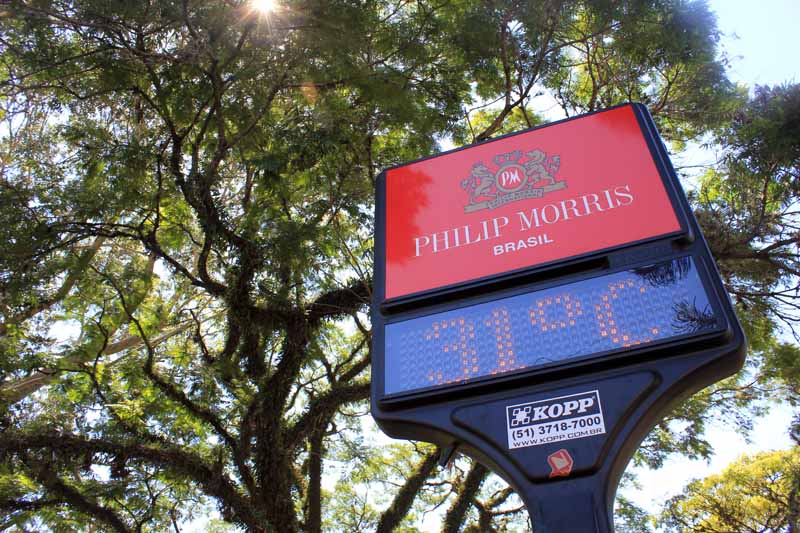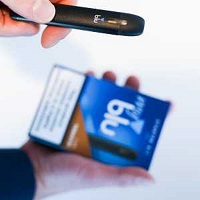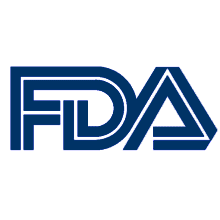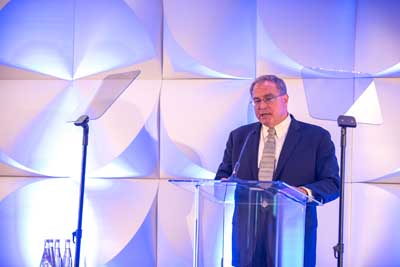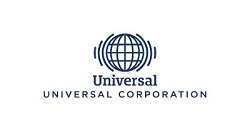Philip Morris International is due to host a live audio webcast at www.pmi.com/2017Q4earnings from 09.00 Eastern Time on February 8 to discuss its 2017 fourth-quarter and full-year results, which will be issued about 07.00 the same day.
During the webcast, which will be in listen-only mode, CEO André Calantzopoulos will discuss the company’s results, the outlook for 2018 and, with CFO Martin King, answer questions from the investment community and news media. The webcast will be in a listen-only mode.
The audio webcast can be accessed also on iOS or Android devices by downloading PMI’s free investor relations mobile application at www.pmi.com/irapp.
An archived copy of the webcast will be available until 17.00 on March 9 at www.pmi.com/2017Q4earnings.
Slides and script also will be available at www.pmi.com./2017Q4earnings.
Tag: United States

PMI to webcast results

Volume down sharply
Philip Morris USA’s cigarette shipment volume during the 12 months to the end of December, at 116,606 million, was down by 5.1 percent on that of the 12 months to the end of December 2016, 122,930 million.
Marlboro shipments were down by 5.1 percent to 99,974 million, while shipments of other premium brands were down by 6.5 percent to 5,967 million.
Discount brand shipments were down by 5.2 percent to 10,665 million.
PM USA’s share of the US retail cigarette market during the year to the end of December, at 50.7 percent, was down by 0.4 of a percentage point. Marlboro’s share was down by 0.4 of a percentage point to 43.3 percent, while that of the company’s other premium brands was down by 0.1 of a percentage point to 2.7 percent. The company’s discount-brands’ share was up by 0.1 of a percentage point to 4.7 percent.
In reporting its results yesterday, Altria said that PM USA’s reported domestic cigarettes shipment volume had decreased by 5.1 percent during 2017, primarily driven by the industry’s rate of decline, retail share declines, and one fewer shipping day. ‘When adjusted for calendar differences, PM USA’s domestic cigarettes shipment volume decreased by an estimated five percent,’ it said. ‘Total cigarette industry volumes declined by an estimated four percent.’
Middleton’s cigar shipments during the year to the end of December, at 1,542 million, were up by 9.9 percent on those of the year to the end of December 2016, 1,403 million.
Shipments of Black & Mild cigars were up by 10.7 percent to 1,527 million, while shipments of other brands were down by 37.5 percent to 15 million.
Meanwhile, USSTC’s smokeless product shipments (cans and packs) during the year to the end of December, at 841.3 million, were down by 1.4 percent on those of 2016, 853.5 million.
Copenhagen shipments were increased by 1.2 percent to 531.6 million, while Skoal shipments were down by 7.3 percent to 241.9 million.
Other-brand shipments were up by 0.4 percent to 67.8 million.
USSTC’s share of the retail market in smokeless tobacco was down by 1.0 percentage point to 53.7 percent. Copenhagen’s share was increased by 0.5 of a percentage point to 33.7 percent, while Skoal’s share was down by 1.4 percentage points to 16.7 percent. The share of the company’s other brands was down by 0.1 of a percentage point to 3.3 percent.
In presenting the results, Altria’s chairman, CEO and president said the company had had another “strong year in 2017”.
“We delivered outstanding financial performance and continued to focus on rewarding our shareholders – paying out $4.8 billion in dividends, increasing our dividend by 8.2 percent and repurchasing more than $2.9 billion in shares. Our 2017 total shareholder return of 9.4 percent follows four consecutive years of returns exceeding 20 percent. Over this five-year period, our total shareholder return of 181 percent outperformed both the S&P 500 and S&P Food, Beverage and Tobacco Index by more than 70 percent.
“That success was built on our core tobacco businesses, which delivered strong income growth and expanded their already high margins, despite a year with some unique challenges. Further, we acquired Nat Sherman to improve our smokeable segment’s position in the growing super-premium cigarette segment.
“We also accomplished several other important strategic initiatives for future success, including making significant progress toward our goal of becoming the US leader in authorized, non-combustible reduced-risk products.
“And the passage of federal tax reform strengthens our financial capability to further invest in our businesses and reward our shareholders. We thus are forecasting 2018 full-year adjusted diluted EPS growth in a range of 15 percent to 19 percent.”
Pod-device is guaranteed
Imperial Brands said yesterday that it had launched, via its subsidiary Fontem Ventures, a new product into the fastest-growing segment of the e-vapor category in the US, which comprised pod-based devices.
‘The myblu™ device is a pod-based system that provides consumers with power, performance and simplicity in a compact and user-friendly design,’ Imperial said in a note posted on its website.
‘Myblu can be fully charged in only 20 minutes and is supported by a lifetime device warranty, myCARE™.’
Antoine Blonde, general manager at Fontem Ventures USA, was quoted as saying the device would significantly enhance the vaping experience for consumers.
“Our constant quest for innovation and improvement is at the heart of blu as a brand,” said Blonde. “We believe that myblu™ will set a new benchmark in the e-vapour category.
“Consumer feedback has been very positive and we’ve sold out of product pre-orders faster than ever before.”
Imperial said that myblu™ launches were scheduled to follow shortly in other markets, including those in the UK, France and Italy.
E-cig rules challenged
US Food and Drug Administration rules threatening the survival of the US’ independent electronic-cigarette industry could be overturned if a new lawsuit filed by the non-profit Pacific Legal Foundation proves successful, according to an op-ed piece by Guy Bentley for the Washington Examiner.
Bentley said that the FDA’s ‘deeming rule’, which was issued in 2016, brought e-cigarettes under the agency’s regulatory control, subjecting them to the same kinds of marketing restrictions as those governing tobacco cigarettes.
Even to get approval for sale, vapor products would have to be taken through a prohibitively expensive pre-market approval process, and Bentley predicted that most e-cigarettes would disappear from the market by 2022, when product applications were due.
And the manufacturers of those products that did get through the application process would face an even greater battle to be allowed to make straightforwardly factual statements about their products to consumers.
‘Thanks to this regulatory mess, by 2022 we could face the bizarre situation where cigarettes, which kill half of their lifelong users, remain abundant and new cigarettes can come to market with ease but products that are safer and help people quit smoking will be regulated out of existence,’ said Bentley.
‘But this outcome is not inevitable, with the deeming rule’s facing a fresh legal challenge.
PLF’s lawsuit against the FDA argues the deeming rule is unconstitutional and threatens individual liberty.’
Bentley (@gbentley1) is a contributor to the Washington Examiner’s Beltway Confidential blog. He is a consumer freedom research associate at the Reason Foundation and was previously a reporter for the Daily Caller.
His piece, which includes details about the PLF’s key arguments, is at: http://www.washingtonexaminer.com/fda-sued-over-unconstitutional-rule-that-threatens-e-cigarette-businesses/article/2647532.
PMI: review continuing
Philip Morris International has made the point that the ‘careful review’ by the US Food and Drug Administration of the Modified Risk Tobacco Product (MRTP) applications for PMI’s heated tobacco device IQOS is continuing.
On January 24 and 25, the Tobacco Products Scientific Advisory Committee (TPSAC) carried out, at the request of the FDA, an investigation into the scientific issues related to these MRTP applications and broadly recommended that they be rejected.
On a note posted on its website yesterday, PMI said that experts from PMI and Philip Morris USA Inc. had presented to the TPSAC meeting.
‘The meeting was part of the FDA’s review of PMI’s request to commercialize IQOS in the US as a “Modified Risk Tobacco Product”,’ the note said. ‘US law and policy recognize product innovation as important to the 40 million American men and women who smoke.
‘To advise the agency on PMI’s applications, the committee covered a wide range of scientific, technical, and consumer-communications topics. It raised questions and probed the likelihood and magnitude of potential benefits as well as how best to address possible unintended use.
‘Although the Committee did not agree with some of the specific language of proposed risk and harm consumer communications, it confirmed that the evidence supported the statement that switching completely to IQOS significantly reduces exposure to harmful chemicals.’
Meanwhile, PMI’s CEO, André Calantzopoulos (pictured), described the committee’s two-day discussion as a milestone event. “We thank the agency and the committee for their interest in our scientific dossier and our determination to enable adults who smoke to have access to and information about better alternatives,” he was quoted as saying. “I am deeply grateful to my colleagues for their exceptional work on our application to the FDA and for the presentations last week. Our science and the commitment of our people give me confidence that we will realize our vision of a smoke-free future.”
The PMI note said that the company believed the committee’s interactions with presenters and its discussion reflected respect for PMI’s scientific data and commitment to bring IQOS to the US.
‘The Committee delved into such areas as inferences about long-term health outcomes, quantification and comparison of risk, the best way to formulate consumer information, and areas for post-market surveillance,’ the note said. ‘At the end of the meeting, the members of the committee discussed and voted on particular questions on which the agency requested the committee’s views. TPSAC recommendations and votes are not binding on the FDA.’
Calantzopoulos said that as a next step, PMI looked forward to working with the FDA to clarify outstanding points so as to best assist in the agency’s ongoing decision-making process, which inherently entailed a certain degree of scientific uncertainty pre-market. “As the FDA routinely does with regard to the many products it regulates, I believe the agency will ultimately address that uncertainty in the best interest of people who smoke,” he said.
PMI has submitted also a Pre-Market Tobacco Application (PMTA) to the FDA which, if granted, will permit the commercialization of IQOS in the US without modified risk messages. This application was not before the committee because it follows a separate regulatory pathway.
Under agreements with PMI, PM USA is licensed to sell IQOS in the US should PMI receive a PMTA marketing order from the FDA
‘Cruel’ animal tests stopped
The deaths of four squirrel monkeys used as subjects in a nicotine addiction study have prompted the US Food and Drug Administration to shut down the research permanently and to establish a council to oversee all animal studies under the agency’s purview, according to a story by Sheila Kaplanjan for the New York Times.
“It is clear the study was not consistent with the agency’s high animal welfare standards,” Dr. Scott Gottlieb, the FDA commissioner, said in a statement on Friday. “These findings indicate that FDA’s animal program may need to be strengthened in some important areas.”
Gottlieb has called in an independent investigator to examine the agency’s animal research programs, starting with those at the National Center for Toxicological Research, in Arkansas, where the squirrel monkeys were housed.
FDA researchers are continuing other primate studies, though Gottlieb said he wanted to reduce reliance on them.
The suspended study, begun in 2014, was designed to inform agency officials who have expanded oversight of tobacco products, regulation of e-cigarettes and alternative nicotine delivery devices.
The research was supposed to measure the effects of nicotine on addiction, mostly on young squirrel monkeys though it also included some adults.
The deaths drew the attention of many animal rights activists, including the celebrated primate expert Jane Goodall. In a September letter to Gottlieb, Dr. Goodall accused the researchers of performing cruel and unnecessary nicotine addiction experiments on the squirrel monkeys.
In September, the FDA suspended the studies and started investigating treatment of the animals. They found numerous deficiencies, although the agency has not released an inspection report with details.
Kaplan’s story is at https://www.nytimes.com/2018/01/26/health/fda-monkeys-nicotine.html?emc=edit_tnt_20180126&nlid=60534081&tntemail0=y.
Grants-offer spurned
Seventeen public health schools in the US and Canada yesterday pledged to refuse research money from the New York-based Foundation for a Smoke-Free World (FSFW), according to a story by Collin Binkley for WHSV Online relayed by the TMA.
Presumably they have pledged not to apply for such grants.
FSFW was launched in September with a $1 billion grant from Philip Morris International.
The foundation has yet to issue any funding but it has received proposals that are currently under review.
“The idea of taking money that’s from the tobacco industry is just antithetical to everything we do,” said Karen Emmons, dean for academic affairs at Harvard’s public health school.
A letter signed by the 17 college deans said both the tobacco industry and PMI had a long history of funding research in ways meant purposely to confuse the public and advance their own interests.
The foundation has said it will pay for research that helps smokers quit, helps tobacco farmers find other livelihoods and develops reduced-risk alternatives to traditional cigarettes.
Derek Yach, chief of the FSFW and a former executive of the World Health Organization (pictured), said that the foundation was “fully insulated” from industry influence.
Universal to webcast results
Universal Corporation is due to webcast a conference call on February 6 following the release of its results for the third quarter of fiscal year 2018 after market close on that date. The conference call, which will be in listen-only mode, will begin at 17.00 Eastern Time and will be hosted by Candace C. Formacek, vice president and treasurer.
A live webcast of the conference call will be available online at www.universalcorp.com.
A replay of the webcast will be available at that site through May 6.
In addition, a taped replay of the call will be available from 20.30 on February 6 through February 20 at (855) 859-2056, using the telephone replay identification number 2686739.
Retail limits proposed
A bill introduced into the Hawaii Senate on Friday is seeking to keep new tobacco and electronic-cigarette stores from opening near schools, public parks, or public housing complexes, according to a story by Patrick Lagreid for HalfWheel.
Lagreid said the bill had been introduced by six state senators.
If passed, it would require any ‘new tobacco specialty shop’ to be at least 750 feet from the designated places.
Violators would face a fine of $500 for the first day of offense, and a fine of between $500 and $2,000 for subsequent days of offense.
The bill has not been referred to a committee, but if it were to pass, the ban would take effect on January 1, 2019.
New e-cig report imminent
The findings of a report into the public health effects of electronic-cigarette use in the U.S. are due to be discussed during a public webinar next week.
According to a National Academies News press note, millions of U.S. citizens use electronic nicotine delivery systems, which were described as a diverse group of devices such as ‘cigalikes’ and vape tank systems that produce an aerosol that users inhale via a mouthpiece.
“A new congressionally mandated report from the National Academies of Sciences, Engineering, and Medicine evaluates the available evidence of the short- and long-term health effects related to the use of e-cigarettes in users; vulnerable populations of users such as youth, pregnant women, and individuals with underlying medical conditions; and non-users exposed to second- and third-hand aerosol generated by use of these devices,” the note said.
The report is said to contain dozens of conclusions in areas such as smoking initiation and cessation; the health effects of using e-cigarettes compared to those of smoking combustible tobacco cigarettes; and the health effects related to cancer, cardiovascular disease, and respiratory and oral diseases.
The note said that members of the committee that conducted the study and wrote the report will present their findings and recommendations, and answer questions during a public webinar beginning at 11.00 Eastern Standard Time on Jan. 23.
To register for the webinar, click here.

